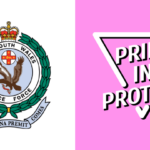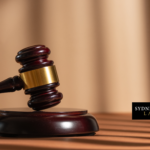Previous Convictions for Gay Sex to be Expunged in NSW

Thirty years after the decriminalisation of homosexuality, those convicted under out-dated laws are going to be able to apply to have their convictions expunged.
Victoria recently announced that it was going to remove all historic convictions from those who were convicted of consensual gay sex before it was legalised, and the NSW Government has announced that it is following suit.
A private members bill, introduced into the NSW Parliament in March by Coogee MP Bruce Notley-Smith, has been passed without amendments and is expected to take effect next year.
The bill allows for those convicted of consensual gay sex before 1984 to apply to have their convictions expunged, if they haven’t already been expunged by virtue of the Criminal Records Act 1991.
It also allows for the removal of previous convictions made under the unequal age of consent laws that were in force at that time.
There are a number of different offences that are covered under the legislation, including buggery and loitering for homosexual purposes.
The bill passed with the support of both parties and its implementation means that gay people with previous convictions for those offences can have them permanently erased from their record.
This means they will no longer have to declare them or have to deal with any issues arising from having those offences listed on their criminal history.
When was gay sex made legal?
Until 1984, consensual gay sex was a crime in NSW.
This meant that people who were found to have engaged in consensual sexual relations with members of the same sex could be charged and even imprisoned.
The impact of having a criminal conviction has also meant that many gay people were prevented from working in certain occupations, travelling to certain countries, and doing volunteer work.
Even after gay sex was made legal, unequal age of consent laws meant that people could be convicted of underage sex if one partner was 17 and the other 16.
Under the new legislation, anyone convicted under those laws will also be able to apply to have their conviction expunged.
What does expunging do?
Once a conviction has been expunged it is permanently erased and the person can swear under oath that they have no criminal convictions (provided they haven’t committed any other offences).
They will also be able to work in occupations that require a clean criminal record, travel to countries that they may not previously have been able to, and to undertake volunteer work.
After a person has applied for their record to be expunged and the application has been approved, the Department of Justice is required to remove any trace of it from the public record, make the entry incapable of being found, and destroy any identifying information between the record and the person.
How can a person apply to have their record expunged?
Under the new legislation, it is anticipated that the application process will be in place by mid-2015, allowing those who have previously been convicted of a now legal gay sex offence to apply to have any historical convictions permanently removed.
To take advantage of these changes, applicants will need to apply in writing and the application will be considered.
If a person is deceased, their family or legal representatives can apply on their behalf to have their convictions expunged.
Expunging historical convictions under the new laws will only be approved if the conviction regards an act that is no longer an offence.
If the conviction is for something that is still an offence, the record will still remain if not liable to expunction through the Criminal Records Act.
The exact number of people who will be affected by these changes is not known, as some records are not computerised.
It is however expected that there is likely to be several hundred applications once the new legislation comes into effect.
NSW Premier Mike Baird said in a statement that the measure was long overdue:
“It recognises the hurt and anguish experienced by those who were convicted of consensual homosexual acts that are now no longer criminal offences,” he said.
This legislation shows clearly how community attitudes have changed over the last 30 years and it has been heralded as a positive move by gay and lesbian advocacy organisations.
South Australia is believed to be likely to follow suit in allowing records to be expunged in the near future.






